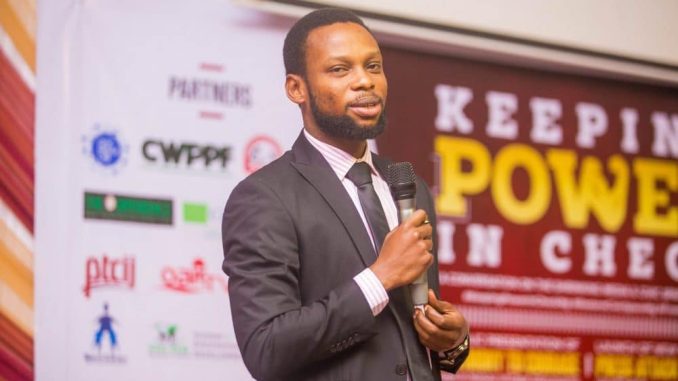
Investigative journalist and the founder of the Foundation for Investigative Journalism (FIJ), Fisayo Soyombo, has voiced concerns regarding the growing apprehension among youth towards the field of journalism.
Soyombo condemned the Nigerian government’s confrontational approach to the media, cautioning that this attitude reflects the oppression experienced during military rule.
According to him, journalists are considered cybercriminals by today’s government.
Soyombo highlighted an environment characterised by intimidation, legal harassment, and a government that views the press with scepticism.
He remarked that this atmosphere of fear is deterring newcomers from pursuing careers in journalism.
Naija News reports that Soyombo made these remarks during an appearance on Channels Television’s The Morning Brief on Tuesday, May 6.
Soyombo pointed to systemic patterns of harassment, including misinterpretation of laws to criminalise journalism.
He argued that the issue with the Cybercrime Act lies not in its recent amendments, but in its weaponisation through interpretation.
He explained, “The police working in cahoots mostly with corrupt politicians will always find a way to interpret what has been published as a cybercrime.
“You know it is just semantics. You amend it, you use different sets of words, they come back and it’s still that you published something injurious to another person.
“But the law is clear: when that happens, you go to court. Even without going to court, cybercrime law exists just to hound journalists.”
Speaking further, he said: “There’s a lot of scaremongering, and that’s the part that is the most worrisome to me,” Soyombo said.
“We now have people saying to young people, graduates, ‘You want to become a journalist? You want the government to keep going after you? You want to end up in prison, in a police cell?”’
“In a country where the country considers journalists cyber criminals, there’s no other way to put it. Between 1986 and 2003, when Bola Tinubu became the President, 1,034 Nigerian journalists were detained.
“By the end of the first year of Tinubu’s reign, 28 journalists had been detained; that figure is equal to the annual average of the last 38 years.
“More than half of that happened under the military regime, which tells you that in a democracy, press freedom is just as bad or even worse than what it was in the military regime,” he added.
Soyombo also stated that journalism in Nigeria now requires far more than writing skills.
“You need that skill to keep watching over your shoulder. Every day, you keep taking security training, digital security, and physical security training, keep protecting yourself, keeping your address confidential, and knowing the circle you keep.
“It’s unfortunate but you can’t do journalism today and live a normal life,” Soyombo said.
Speaking on a widening disconnect between journalists and the political class, Shoyombo said, “When government officials consider journalists anti-government, then it means that there’s a disparity in the wants of the two groups.
“Meaning the people in government don’t necessarily want a better society. They just want to fill their pockets, they want to push their personal agenda and they want to advance their political careers.
“If both parties want a better society, then they should be able to work together.”
Notwithstanding this, Soyombo stressed that the media continues to uphold the democratic process.
“We maintain a cordial relationship with the government, but the government does not reciprocate that friendship,” he remarked.
“It is not a mutual relationship; it is their perception of us.”
To safeguard against potential issues, he urged all media platforms, especially digital ones, to “ensure they have continuous legal counsel.”
“For stories that you think will cause more than usual national interest, a lawyer has to have a look. And then when it gets published and you get sued, there has to be a lawyer to say, ‘Yes, we’ll do it,’” the Investigative Journalist advised.
“People don’t talk about the threat of SLAPP—Strategic Lawsuits Against Public Participation— the fact that in newsrooms, lots of editors are scared (of being sued). If your story is true, you should be able to defend yourself”

